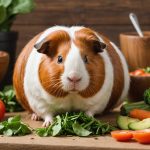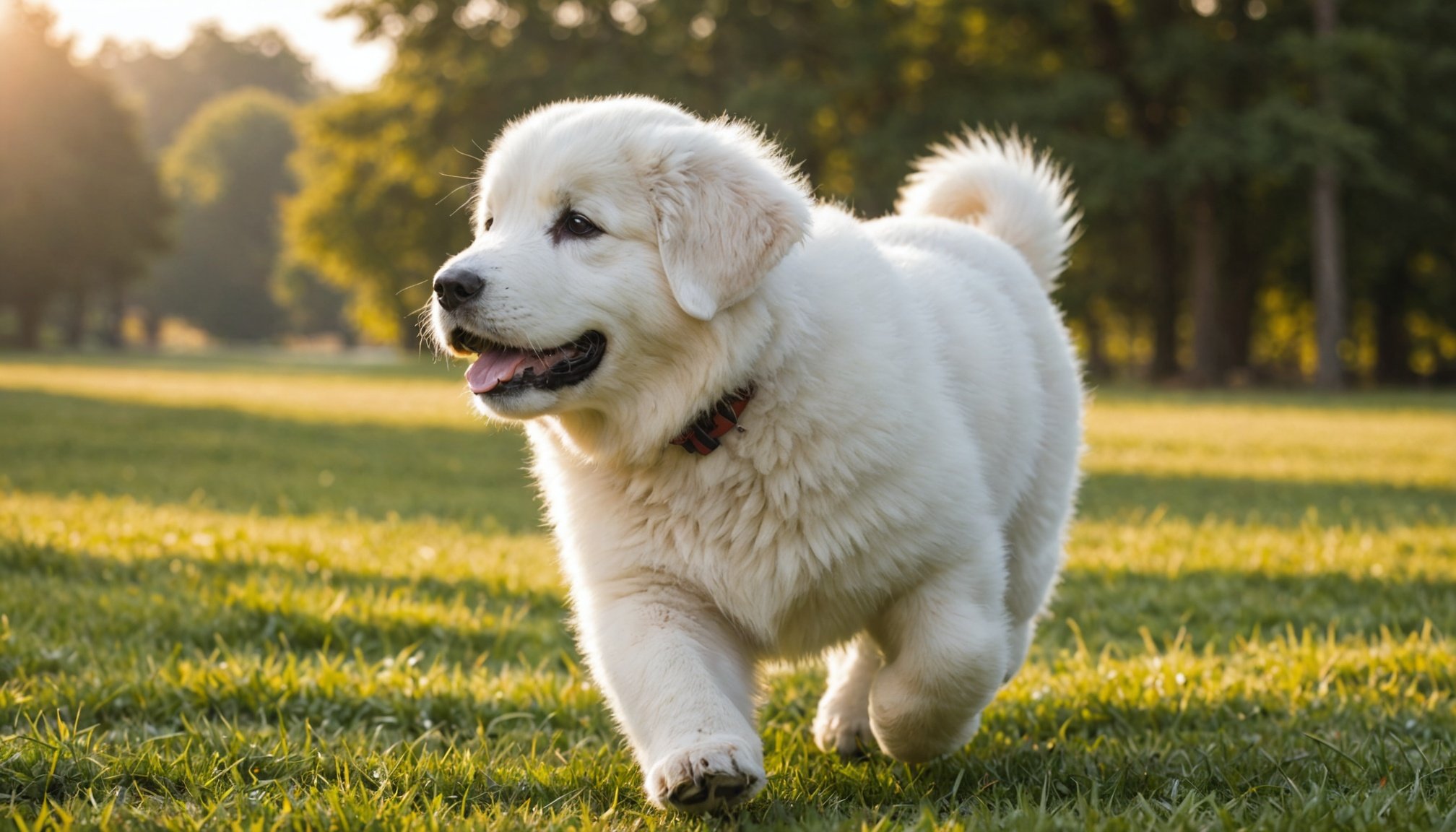Understanding Nutritional Needs of Great Pyrenees Puppies
For Great Pyrenees puppies, the right nutrition is essential to support their rapid growth and development. Their dietary requirements are distinct and must be tailored to their specific needs to ensure healthy progression through their growth stages.
Protein and Fat Importance
Protein is crucial for muscle development and overall growth in Great Pyrenees puppies. It provides the building blocks necessary for their expanding bodies. Further, dietary fat plays an equally important role. Fat supplies them with a concentrated source of energy, crucial for the active lifestyle these puppies usually have.
Avez-vous vu cela : Chocolate Poisoning in Dogs: Recognizing the Symptoms and Taking Action
Growth Stages and Dietary Implications
As Great Pyrenees puppies transition through various growth stages, their dietary needs change. As young pups, a higher intake of protein and fat will support optimal growth rates. As they mature, a gradual shift to a more balanced ratio ensures their growth stabilises without leading to obesity.
Consequences of Improper Nutrition
Neglecting the dietary requirements of these puppies can lead to several health issues. A diet lacking in essential nutrients may result in stunted growth, weakened immune function, and increased susceptibility to illnesses. Therefore, understanding and meeting their nutritional needs is paramount for their lifelong health and wellness.
A voir aussi : Chocolate Poisoning in Dogs: Recognizing the Symptoms and Taking Action
Recommended Protein and Fat Ratios
When considering a puppy diet, particularly for Great Pyrenees young ones, achieving the right protein and fat balance is crucial for their development and health. The ideal protein percentage for Great Pyrenees puppies generally ranges from 22% to 26%. This range ensures they receive adequate nutrients necessary for muscle growth and development. Since protein is a key building block for their bodies, ensuring the right proportion is essential for robust health.
In terms of fat content, approximately 12% to 16% is typically recommended. Fat not only provides a concentrated source of energy but also plays a vital role in the absorption of fat-soluble vitamins and supports a healthy coat and skin. It is essential for energetic puppies, as it fuels both mental and physical activity.
Adjustments in these ratios might be necessary as puppies grow. During their initial stages of rapid growth, slightly higher protein and fat levels might be beneficial. However, as they transition into adolescence, these levels might need to be adjusted to prevent excessive weight gain, while still supporting their active lifestyle. Balancing protein and fat in their diet sets the foundation for a healthy adulthood.
Selecting the Right Food Types
Choosing the appropriate puppy food selection is critical to ensure your pet’s healthy growth and development. Understanding what goes into your puppy’s diet is the first step.
Types of Commercial Puppy Foods
Various commercial options are available for puppy foods, each designed to meet the nutritional needs of young dogs. Dry kibble is convenient, promotes dental health, but can lack moisture. Canned food, on the other hand, is more palatable with higher moisture content, making it suitable for puppies who may be picky eaters. Other options like semi-moist foods provide a middle ground with balanced moisture levels and taste. Consider your puppy’s preferences and dietary needs when making a choice.
Raw vs. Cooked Diets
When exploring raw versus cooked diets, it’s crucial to weigh the pros and cons. Raw diets, including raw meats and bones, can offer natural nutrients but carry risks of bacterial contamination if not handled properly. Cooked diets, on the other hand, ensure food safety with the guarantee of eradicated pathogens. The key is to maintain the nutritional balance of high-quality, digestible ingredients regardless of the diet style chosen.
Ingredients to Look for in Puppy Food
- High-quality protein sources: Ensure the presence of meat, poultry, or fish.
- Healthy fat sources: Opt for foods with omega-3 and omega-6 fatty acids.
- Avoiding fillers and additives: Steer clear of artificial preservatives, colours, and unnecessary fillers to maintain your puppy’s health.
Feeding Schedules and Portion Control
Establishing a consistent feeding routine is crucial for ensuring your pet’s overall well-being. A regular schedule helps regulate their metabolism and keeps their energy levels stable throughout the day. It also assists in managing your pet’s weight by preventing overfeeding or underfeeding. Setting precise mealtimes makes it easier to monitor their health and detect any changes in appetite, which could indicate underlying health issues.
Determining the accurate portion sizes for your pet’s meals is equally important. This requires considering factors such as age, activity level, and specific dietary needs. While guidelines on pet food labels provide a starting point, it’s wise to tailor these recommendations to your pet’s individual requirements. Consulting with a veterinarian can offer personalized advice, ensuring optimal growth and health.
It’s essential to examine the frequency of meals and its impact on your pet’s development. Puppies and kittens typically need more frequent, smaller meals due to their higher energy needs and growing bodies. Adult pets, however, often thrive on two balanced meals per day. Regularity helps maintain their digestive health and accommodates their natural dietary inclinations. Adapting this approach ensures your pet enjoys a balanced diet that meets their nutritional needs comprehensively.
Supplements for Healthy Growth
Providing Great Pyrenees puppies with a balanced diet is vital, yet sometimes diet alone may not suffice to deliver all the essential nutrients needed for healthy growth. Certain puppy diet supplements can bridge this nutritional gap, ensuring that your puppy develops properly.
There are several scenarios where supplements may become necessary. These include situations where the natural diet lacks certain vitamins and minerals or when a puppy faces specific health challenges requiring additional nutritional support. For example, if your puppy is not gaining weight adequately or shows signs of nutrient deficiency, supplementation might be advised.
Choosing the right supplements involves understanding the specific nutritional needs of Great Pyrenees puppies. It’s crucial to ensure any supplement is safe and effective, backed by scientific evidence, and tailored to the puppy’s dietary requirements. Consulting with a veterinarian can provide insights into which supplements might be necessary, such as glucosamine for joint health or omega fatty acids for a shiny coat.
When selecting a supplement, check for natural ingredients and watch for any potential allergens. It’s always best to prioritize quality over quantity in ensuring your puppy receives the best possible start to life.
Monitoring Health and Growth
Monitoring puppy health and growth is crucial, especially for breeds like Great Pyrenees which have unique needs. Regular check-ups ensure your puppy’s development remains on track. During these visits, weigh-ins are vital; they provide critical information about your puppy’s growth trajectory. Ensuring your Great Pyrenees is well-nourished prevents health issues down the line. A well-nourished puppy will exhibit signs such as a shiny coat, alertness, and playfulness.
Growth assessment is not solely about tracking weight. Observe their body condition to ensure they’re neither underweight nor overweight. A balanced, nutritious diet supports healthy growth. For Great Pyrenees, protein-rich foods alongside essential vitamins and minerals are recommended.
Common dietary issues sometimes emerge, such as imbalanced nutrition affecting growth. Lack of appetite or weight fluctuation might signal nutritional deficiencies or health problems. Address these by consulting a vet or nutritionist specialising in large breeds. Keeping a detailed record of food intake and any reactions will help manage these issues efficiently.
Ultimately, attentive growth assessment and puppy health monitoring safeguard your Great Pyrenees against potential health hurdles, ensuring they grow into healthy adults. Regular weight tracking and check-ups act as preventive measures, highlighting any concerns early.










